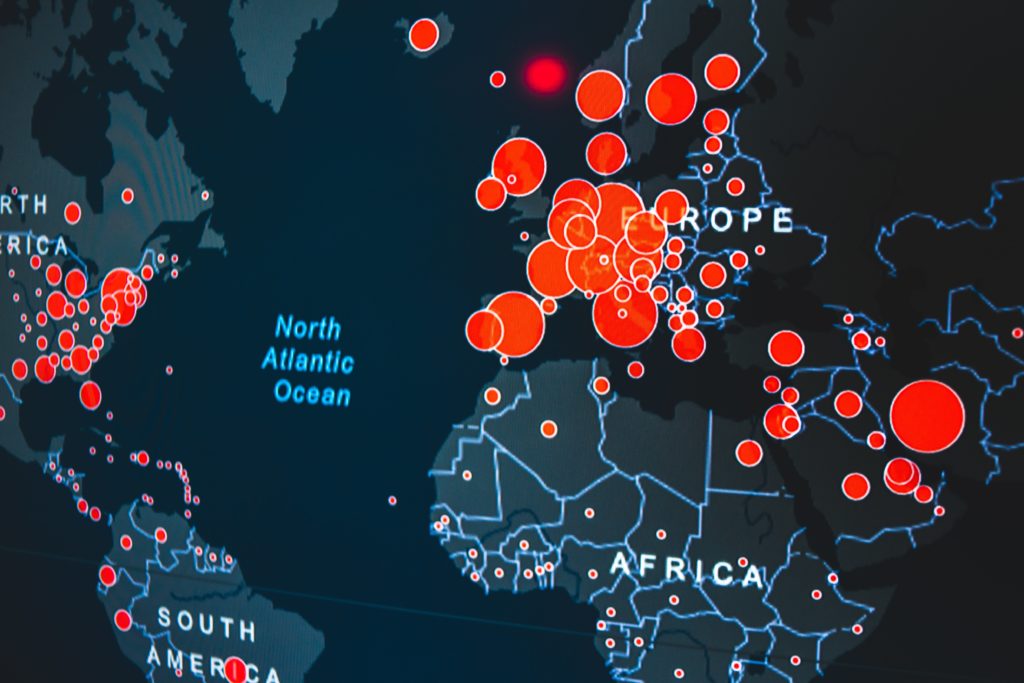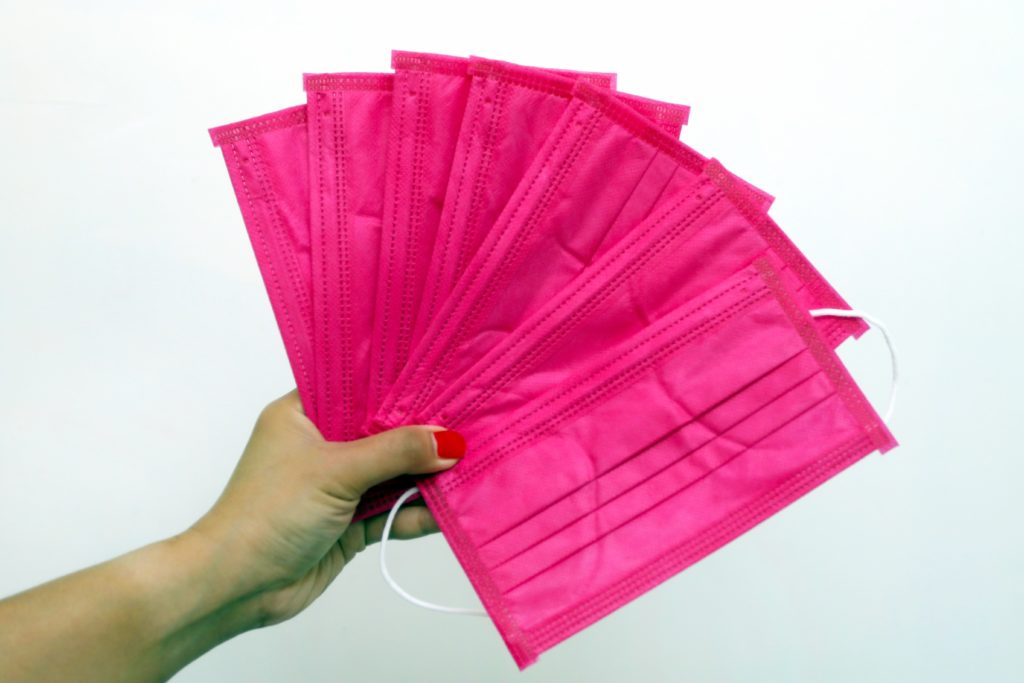It is no longer news that the Coronavirus is now considered a Pandemic. The COVID-19 first originated from a market in Wuhan, China in December 2019. As the world shuts down to contain the virus, it has since spread to 70 countries including the United States of America.

Cases of the virus has increased in an alarming number with death toll on the rise too. Italy has been the worst hit country only falling behind China.
With more than 219,00 people testing positive for the COVID-19, about 8900 people have died worldwide as of March 19. Don’t lose hope more than 84,000 people have recovered from the Coronavirus.
What is Coronavirus ?
According to the WHO, the Coronaviruses (CoV) are a large family of viruses that cause illness ranging from the common cold to severe diseases such as the Middle East Respiratory Syndrome (MERS-CoV) and Severe Acute Respiratory syndrome (SARS-CoV)
The novel Coronavirus (COVID-19) can in fact infect anyone but certain population of people are more vulnerable to the disease than others.
According to the CDC, Centers for Disease Control and Prevention, older adults above the age of 60, people with underlying chronic illness such as heart or lung diseases, diabetes are more likely to become severely ill from the Coronavirus disease. The severity of the COVID-19 symptoms ranges from very mild to severe symptoms. Symptoms occur within 2 -14 days after exposure
Mild symptoms include
- Cough
- Fever
- Shortness of breath
- Other Symptoms include
- Fatigue
- Body aches
- Sore throat
- Runny nose
- Vomiting
Severe Symptoms include pneumonia or bronchitis like illness. According to the CDC, you should seek medical help immediately you notice
- Persistent pain or pressure in your chest region
- Shortness of breath or difficulty breathing
- Bluish lips or face
- Confusion
As of today, there is no supporting evidence that children pose a greater risk of contacting the virus.
Importance of Self Isolation
Self-isolation is important in halting the spread of the Coronavirus It helps protecting your loved ones and others. If you’ve been exposed to the virus one way or the other and notice these symptoms above, limit close contact with people for 14 days.
If you notice someone you live with, with these symptoms also self-isolate for 14 days from the first day you noticed the person having the symptoms.
If you live with elderly people (above the ages of 60), chronically sick people with weakened immune system, someone who is pregnant, try finding a place for them to stay for 14 days. If not possible keep safe distance from them.
Do not go to the pharmacy or hospital. In various countries help hotlines have been made available.
How Does COVID_19 Spread ?
The coronavirus is a zoonotic disease which mans it can spread from animals to man. Research shows that domestic pets such as cats and dogs can also get infected. The virus can spread from
1 Person-to-person within a close range of about 6 feet apart
2. Cough or sneezes that contain respiratory droplets of the virus
3. Touching contaminated surfaces with mouth, eyes or nose.
Diagnosis Of COVID-19
If you’ve had close contact with a confirmed COVID-19 case or notice symptoms, contact your family , friends and your doctor immediately laboratory test are necessary to rule out other common infections. As you await lab result your doctor may suggest you quarantine yourself to prevent spread
Diagnosis is done by laboratory testing of bodily fluids using molecular assays. Molecular assays can either detect the novel virus and other strains that are genetically similar to the virus (e.g. SARS-CoV). The CDC is yet to make this diagnostic exam widely available.
Preventive Measure and Treatment

As of today, there is no specific treatment for the coronavirus. As a viral disease, antibiotics do not help. Antibiotics work against bacteria and not viruses. The general goal of the COVID-19 treatment is to relieve symptoms and boost the immune system so your body fights the illness.
Hospitalization is solely dependent on the severity of the illness. If your doctor finds you fit for home treatment, special instructions are given to help you self-isolate while sick, away from loved ones and pets.
Preventive measures include the following:
- Wash your hands regularly for at least 20 -30 seconds with adequate soap and water.
- Use an alcohol-based hand sanitizer with at least 60% alcohol if water and soap can’t be reached.
- Wash your hands as soon as you get back from work, before and after getting to work.
- Engage in social distancing. Avoid close contact with suspected cases.
- Avoid crowds and social gatherings like pubs, cinemas, restaurants etc.
- Practice personal hygiene
- Dump used tissues in the bin and wash your hands afterwards
- Cover your mouth and nose when you sneeze into a handkerchief, tissue or sleeves. Do not cough into your hands.
- Avoid visitors for the time being.
- Avoid touching your eyes, nose and mouth if your hands have not been watched.
- Do not wear a nose mask if you do not have the Coronavirus.
Tips to Help You Overcome Your Coronavirus Anxiety
- Avoid watching the news, especially if it makes you feel anxious.
- Go to a reputable source such as the GCD, WHO for valuable information on the COVID-19
- Eat healthy
- Get enough sleep and if possible, exercise regularly
- Do not misuse or abuse drugs or alcohol
- Talk to loved one
- Be positive and optimistic
- do something with your free time; read a book, watch movies
- Appreciate health care workers who are at the frontlines against COVID-1 in your locality
- If your anxiety affects your day to day routine, talk to a health professional.
- Clean and disinfect daily especially frequently touched surfaces
- Wear a facemask if you’re sick and around people.
- Use a detergent and soap if surfaces are dirt prior to disinfection
Disinfecting options include
Household bleach solutions
To make, measure, mix 5 tablespoons (1/3rd cup) bleach per gallon of water OR 4 tablespoons bleach per quart of water. Follow the manufacturer’s instructions such as method of application, contact time, concentration, proper ventilation etc.
NOTE: Please do not used expired bleach. Make sure you dilute properly, diluted bleach is effective against the coronavirus, especially alcohol solutions with at least 70% alcohol. Do not mix household bleach containing ammonia with any other bleach.
Was this post helpful, let us know by commenting in the comment box below. Don’t worry your information is safe.


